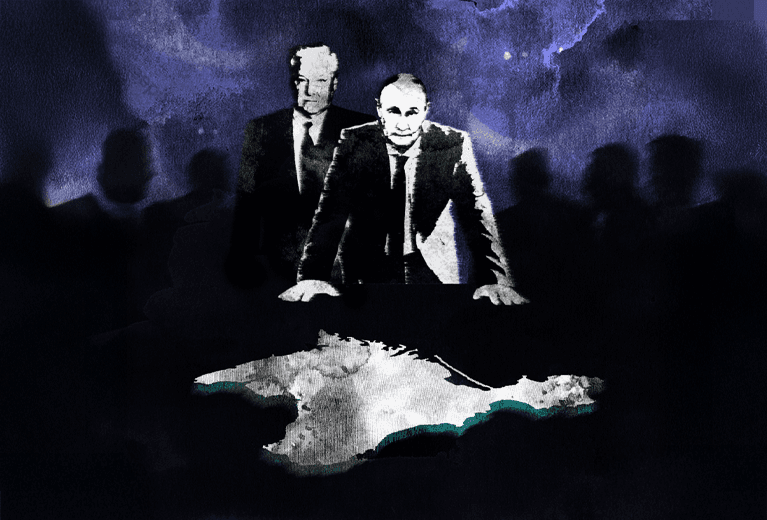In June 2023, there was an explosion at the Kakhovka Hydroelectric Power Plant. Several pieces of evidence showed that the Russian military, who were in control of the hydroelectric power plant at the time, had blown it up from the inside.
The occupied east bank of Kherson Oblast suffered more than the west bank due to its geography, being lower down the river.
Dozens of settlements and summer cottages, where thousands of people lived, were submerged in water.
Representatives of the Russian occupying forces did not recognize the scale of the disaster and said that there was no need to evacuate civilians.
The Kyiv Independent's War Crimes Investigations team collected fifty unique testimonies from volunteers, eyewitnesses, and relatives of eyewitnesses who survived the flooding. One of the film's subjects is Yaroslav Vasyliev, a young man who created a chat in a Telegram messenger to rescue his father from the occupied town of Oleshky. After his rescue, volunteers and those who needed help coordinated their actions in Yaroslav's chat.
The author of the investigation, Olesia Bida, found out that Russia actually ignored the evacuation and did not use enough resources to save civilians. Those locals who took the responsibility to evacuate people were obstructed by the Russian military. The journalists came to the conclusion that there were many more people who were injured and killed in the occupied territory than Russia officially claims. The bodies of the dead were buried and could have been taken to at least five settlements in the occupied part of Kherson Oblast, and for some victims, the place of their burial is still unknown.
INVESTIGATION
For Viktoriia Hrinienkova, life came to a standstill in June 2023. Three of her family members — her mother, father, and grandmother — died in their own home in Hola Prystan, a Ukrainian town in the Russian-occupied part of Kherson Oblast. They were killed in the aftermath of Russia’s destruction of the Kakhovka Hydroelectric Power Plant’s dam.
The Russian forces controlling the plant blew up its engine room from the inside on June 6, 2023. The dam’s destruction caused severe flooding across dozens of communities in Kherson Oblast. The occupied east bank suffered the most damage, as it was at a lower elevation. Thousands of people still lived there.
Viktoriia learned of the explosion from thousands of kilometers away. She and her family had left the occupied territory a few months after the full-scale invasion, but her parents and grandmother refused to leave. Her father had both legs amputated, and her grandmother was nearly blind. They feared they wouldn’t be able to handle the move to another country and adjust to an unfamiliar place.
From the day of the explosion onward, Viktoriia clung to her phone, desperate for any updates. She stayed in contact with her mother while frantically searching for someone who could rescue her family. She could hear the water rising inside her parents’ house — but she could do nothing. Rescue services in the occupied territory ignored her pleas for help.
“My mom called and said, ‘The water has entered the house. It’s up to our knees. Now we’re sitting on the table. Now we’re on chairs on top of the table. The water is up to our waists. We’re up to our necks in water,’” Viktoriia told me.
The day after the dam’s destruction Viktoriia learned that a boat carrying local residents had reached her family’s house. They heard her family shouting for help. But they couldn’t take them — the boat was already full.
After that, Viktoriia’s mother stopped answering her phone. Presumably, it was that day they died.
I met Viktoriia in her new home in the Czech Republic almost a year and a half after the tragedy. We spoke for nearly an entire day. It was clear how deeply her loss had affected her — how raw the wound still was and how unbearable it was for her to accept that her family had died in such a cruel way.

More investigations











